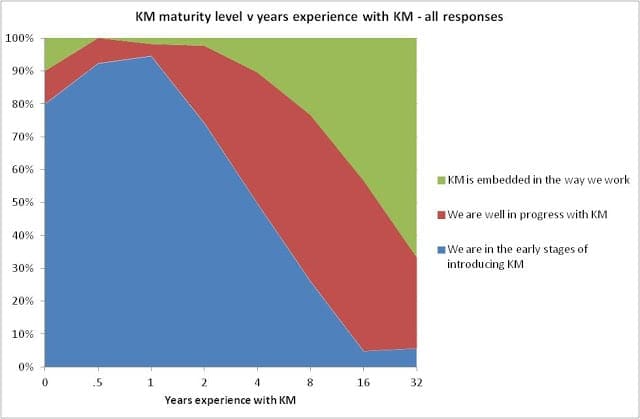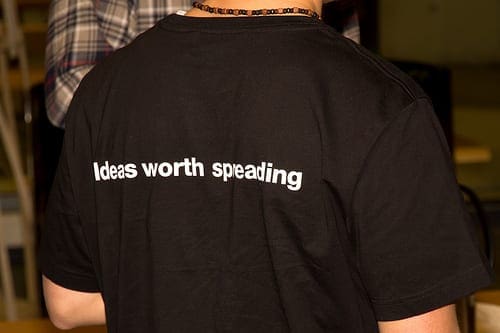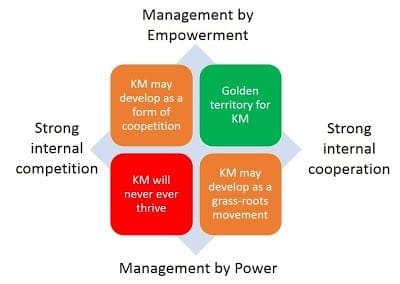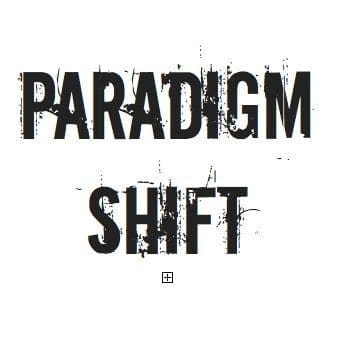Favorite A simple but effective definition of KM I was moved to reprise this video, from 2009, in which I offered a simple definition of KM, because I was very pleased to see the same definition appearing in a speech this week by by Director Dr Haji Mohd Zamri bin
Read More
 Shared by Nick Milton August 20, 2018
Shared by Nick Milton August 20, 2018

Favorite In 1996, Karl Wiig and colleagues made a set of predicitions about the future of KM. How right were they? The 1996 article by the Knowledge Research Institute (Towe, Pizziconi and Wiig) entitled “Knowledge Management; Where Did It Come From and Where Will It Go?” not only presented a timeline
Read More
 Shared by Nick Milton August 17, 2018
Shared by Nick Milton August 17, 2018
Favorite From an old article, a time line of the first 21 years of KM – taking us up to 1996 This time line is taken from the 1996 article by the Knowledge Research Institute (Towe, Pizziconi and Wiig) entitled “Knowledge Management; Where Did It Come From and Where Will
Read More
 Shared by Nick Milton August 16, 2018
Shared by Nick Milton August 16, 2018

Favorite Sharing is no guarantee of uptake. Sometimes better practices and innovations take a long time, and require a lot of support, to take hold. Here is a very interesting article from the New Yorker, by Atul Gwande, about why some ideas or best practices catch on and spread, while
Read More
 Shared by Nick Milton August 15, 2018
Shared by Nick Milton August 15, 2018

Favorite Taken from this publication by Knowledge Street, here is a role description for what is effectively KM Help-desk and support staff – the KM advisors at HP consulting services. This is one in a series of example KM role descriptions on this blog. image from wikimedia commons Stan Garfield describes
Read More
 Shared by Nick Milton August 14, 2018
Shared by Nick Milton August 14, 2018

Favorite The Supply Chain analogy for KM suggests several metrics we can use. I have often used the analogy of the supply chain as one way of thinking about KM. This involves looking at KM as a chain of processes supplying knowledge to the user. This analogy has the benefit of
Read More
 Shared by Nick Milton August 13, 2018
Shared by Nick Milton August 13, 2018
Favorite A quote from a CIO Dive article “Skills required of a successful 2020 IT service management professional“ Knowledge management capabilities Many self-service technology initiatives have failed in recent years due to the neglect of knowledge creation and nurturing. The same may be true of any new technology initiatives if
Read More
 Shared by Nick Milton August 11, 2018
Shared by Nick Milton August 11, 2018

Favorite We know that culture and management style affects KM; here is a way of characterising management style through 2 dimensions. The Boston Square shown here explores four management territories, and their impact on Knowledge Management. The two axes of the square are management by power v management by empowerment;
Read More
 Shared by Nick Milton August 10, 2018
Shared by Nick Milton August 10, 2018

Favorite Here is another couple of ways to characterise the KM paradigm shift. Image from wikimedia commons When I looked at this topic in 2009, I saw the KM paradigm shift as a shift from seeing knowledge as personal and individual property, to seeing it as collective. I presented the
Read More
 Shared by Nick Milton August 9, 2018
Shared by Nick Milton August 9, 2018

Favorite Can organisations learn, or can only people learn? Some thoughts on the subject. from creative commons images We often hear about “organisational learning” but is learning something that organisations actually can do? Or is learning the province of people and animals? (Let’s put machine learning aside for the moment
Read More
 Shared by Nick Milton August 8, 2018
Shared by Nick Milton August 8, 2018
![]() Shared by Nick Milton August 20, 2018
Shared by Nick Milton August 20, 2018






